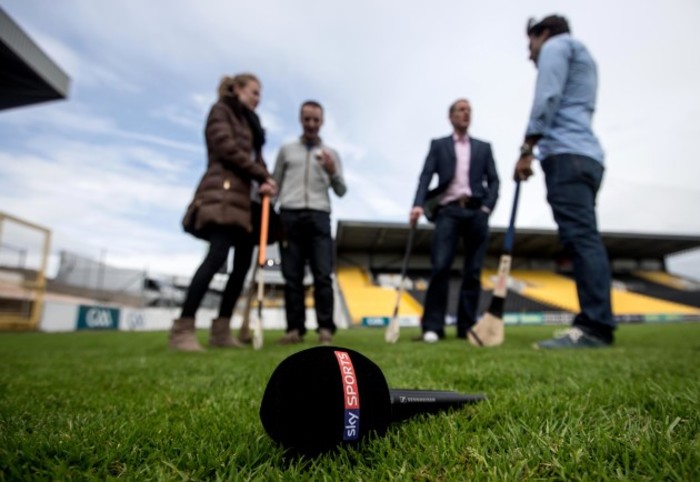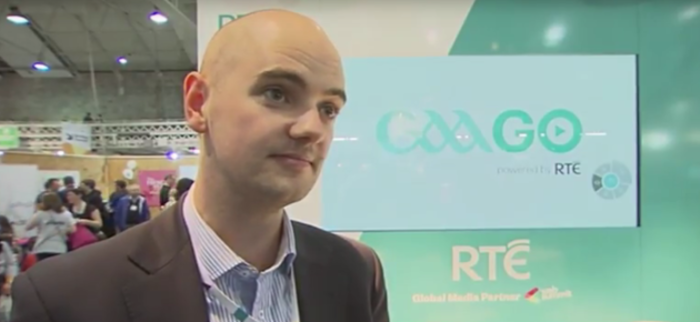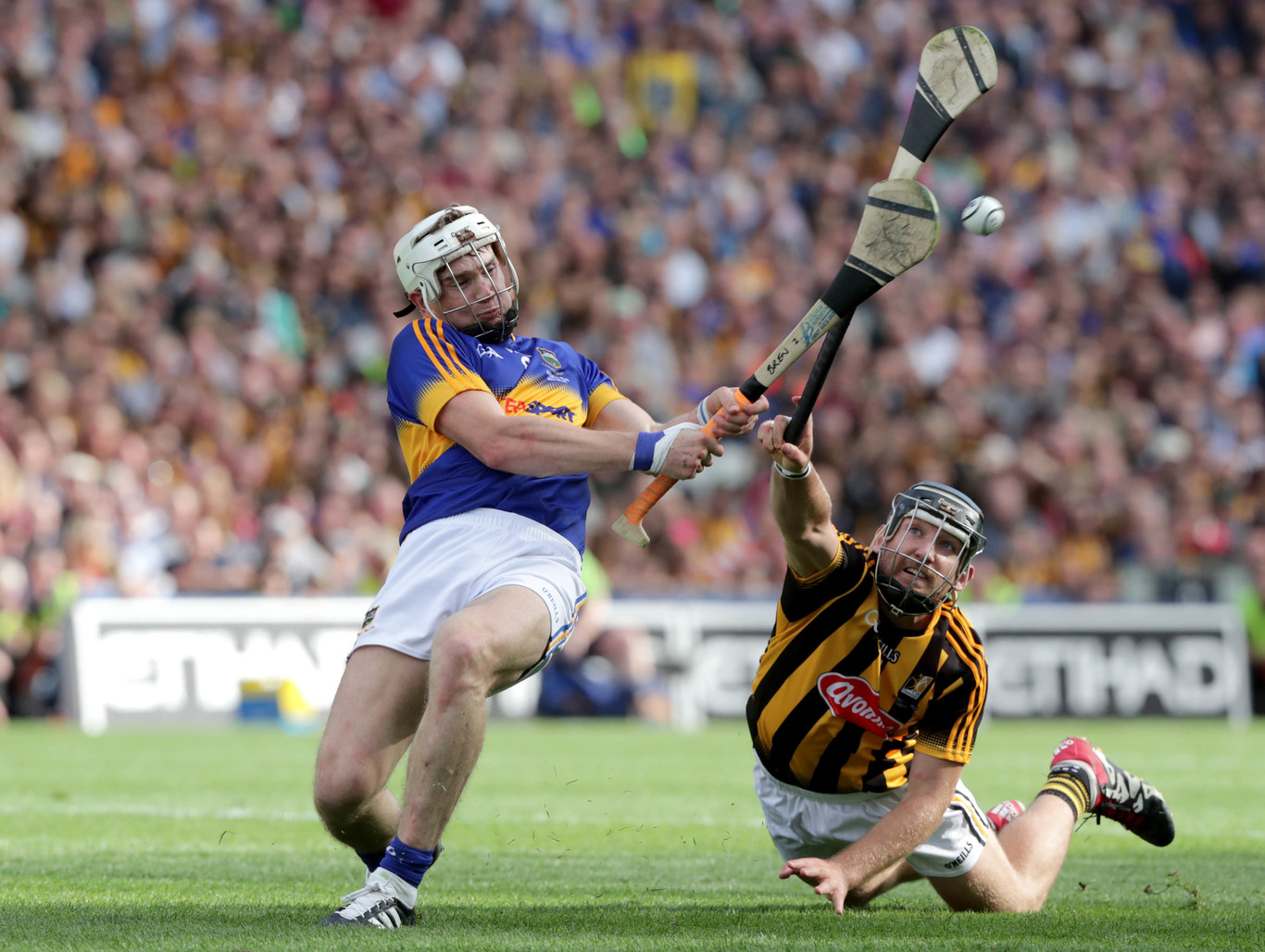'Hurling is one of the fastest sports in the world, it should be shown on ESPN'
The GAA’s media rights manager reveals how he aims to make the most of broadcast deals.
OVER THE PAST few years, broadcasting rights in sports deals have mushroomed.
As the rise of on-demand television has resulted in an ever-fragmented viewing audience for many traditional broadcasters, live sports is one of the few areas where everyone will still sit down and watch at the same time.
This has become increasingly important for advertisers, who are always chasing a captive audience.
In turn, that means live sports have become vital for broadcasters – and the games with large audiences, such as soccer and rugby, are raking in more and more money.
However, what about the sports that are more niche, such as the GAA? In 2014, the organisation signed a three-year broadcasting deal that included extending the exclusive rights for some games to British broadcaster Sky Sports.
While it was viewed by some as a commercial decision, gaelic football and hurling will likely never command huge money as audience figures in the UK tend to be relatively small. Average home-viewership numbers for relatively high-profile matches hovered at around 30,000 last year.
The GAA’s revenue from ‘media coverage’ further attests to this. The income stream stood at €11.3 million in 2015 and €10.4 million the prior year, compared to about €10 million in 2013 – before the deal with Sky, which on the face of it doesn’t appear to have been an enormous money-spinner, was signed.
 Sky Sports agreed a deal to broadcast GAA games
Sky Sports agreed a deal to broadcast GAA games
However that agreement is due to end in May next year, which means that the GAA broadcasting rights will again be up for grabs. With other companies such as Eir Sport expressing interest in the games, the body should be in a decent negotiating position.
GAA media rights manager Noel Quinn is now hoping that the organisation can improve on its previous arrangement.
Speaking to Fora ahead of the One-Zero sport and tech conference in the RDS on Friday, Quinn says that the GAA is hoping to increase the game’s reach while also maximising its value to the association.
Fair
Asked if he thought that the GAA could secure more money once its current contract is up, he has a bullish outlook.
“Yes, we would be hoping to improve on the last deals. International sports rights have shot through the roof, but the GAA is niche,” he says.
“Media rights are always significantly sought after and there is nothing quite like live sports.
“Other sports have seen 100% increases, but we have an international fan base and an island of five million people, so it is difficult to say what percent increase (we would hope for). It depends on who would be interested and what we think is fair.”
The deal with Sky meant that some games, such as the 2015 All-Ireland SFC quarter-final between Donegal and Mayo, were only available on Sky. Quinn says that it is about striking a balance between exclusivity and exposure as the GAA looks to expand the reach of the games.
“When you are looking to carve up domestic and international rights, it’s not an exact science, but one of the key goals is to get the maximum reach and exposure for the games,” he says.
“As an association that gives back 86% of our revenue to members, of course the commercialisation of the rights (is a concern).”
In its last deal, as well as signing with the Irish broadcasters and Sky, the GAA also agreed to show several football and hurling matches on Channel 7 in Australia.
Asked if the organisation is looking to partner with other international stations Quinn says: “We will always look at new broadcasters . Hurling is the (one of the) fastest sports in the world, it should be on ESPN or FOX (but) we can’t have a big broadcaster who could cherry pick finals and provincials.
“They would probably want exclusivity and that is something that will be discussed, but we couldn’t cannibalise GAAGO.”
GAAGO
GAAGO is a subscription service, launched last year in conjunction with RTÉ, that lets emigrants sign up to watch live GAA matches abroad. Audiences worldwide can sign up to the online streaming service, which costs €160 for a season pass showing 100-plus matches.
Quinn says that after Channel 7′s 12-month contract was up, the broadcaster parted ways partially “because of the success of GAAGO”, which could also be used by expats who wanted to watch GAA games.
 GAA media rights manager Noel Quinn
GAA media rights manager Noel Quinn
*** However, when asked if international broadcasters are reluctant to sign deals if they have to compete with GAAGO, he says: “It doesn’t stop us from signing deals. People have seen the GAA because of that (GAAGO) and it has attracted interest.”
Asked if the GAA would consider agreeing deals that would see games broadcast exclusively with international channels he says: “I wouldn’t imagine it is something that we would pursue and I don’t think we would do that when we have GAAGO. We couldn’t know until an approach came (but) I could see no reason why we would vary too much.”
Quinn says that the GAA does not break out the subscription figures for GAAGO for several reasons, such as the fact that individual subscriptions are often used by multiple people to watch games.
“From our research, one subscription is watched by an average four and a half people, which makes it difficult to track numbers.”
With that said, he adds that GAAGO would attract “thousands of viewers depending on the match”.
The partnership with Sky has raised the question of what the GAA’s wider goal is for agreeing new broadcasting deals.
When this is put to him, Quinn says: “Not just with broadcast, but our general ethos is to encourage participation. If you ask (GAA director-general) Paraic Duffy, it would be to maintain our status as the number-one sport in Ireland.”
Internationally, he adds, the aim is to see more clubs introduced, “more people joining clubs and the continuation of our international partners in clubs that are there”.







